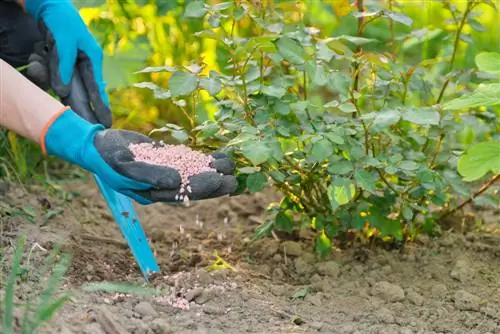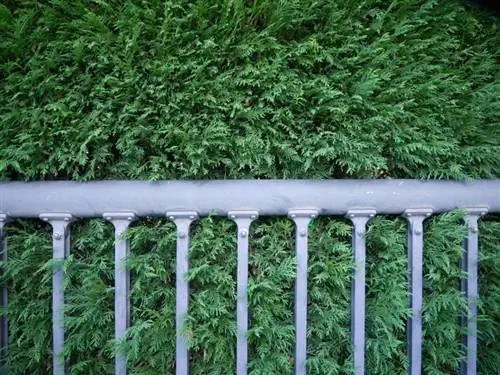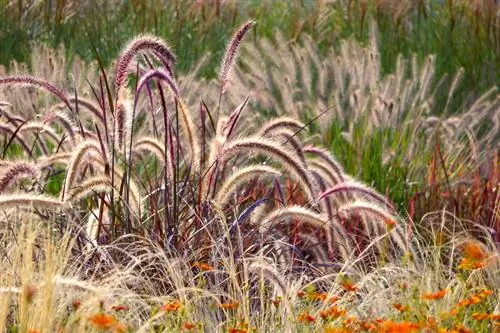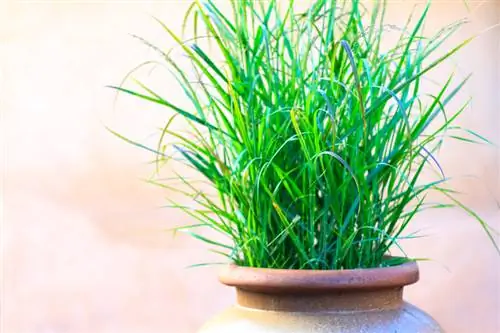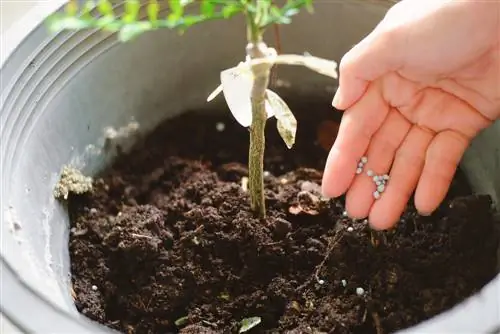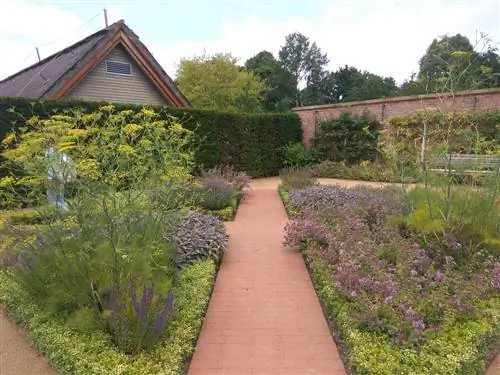- Author admin leonars@hobbygardeners.com.
- Public 2023-12-16 16:46.
- Last modified 2025-01-23 11:22.
It's not just in spring, when everything in the garden is green and sprouting, that plants need good, balanced fertilizer. The right product keeps the soil fertile and ensures that neither deficiency nor overnutrition occurs. But how to fertilize properly and which preparation is recommended for the ornamental garden?
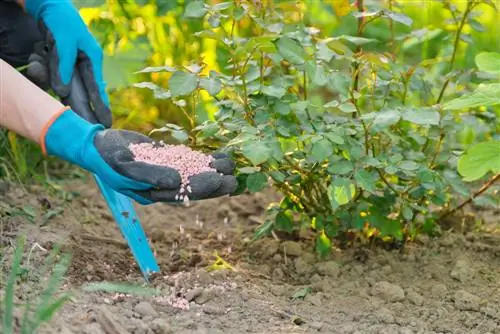
How and when should you fertilize an ornamental garden?
When fertilizing an ornamental garden, a soil analysis is advisable to prevent deficiency symptoms. Suitable fertilizers are organic complete fertilizer, cow or horse manure, horn shavings, blue grain or liquid fertilizer. Fertilize ornamental plants during the growth phase from the end of March to the end of August.
The Law of the Minimum
200 years ago, the agricultural scientist Carl Sprengel published the most important fertilizer rule: the minimum law. It states that the growth of plants is limited by the relatively fewest available resources (nutrients, light, air). This means that, for example, you cannot compensate for an iron deficiency by giving other minerals.
Recognizing deficiency symptoms
It is often not the lack of water or little light that causes the leaves of ornamental plants to turn yellow or the rich flowering to take place. The yellowing of the leaves (chlorosis) is typical of the iron deficiency mentioned above. But too much nutrient application can impair plant growth and have similar effects.
Valuable helper for targeted fertilization: soil analysis
In order to be able to fertilize specifically, it is important to know the nutrient content of the soil. You can have this reliably determined using a soil sample. You should always remove the material for this before applying the first fertilizer and have it examined in a specialized laboratory. Depending on the scope, this costs between 20 and 50 EUR.
Which fertilizer is suitable?
The most valuable fertilizer for the ornamental garden is home-made compost. You can apply this throughout the entire gardening year and supply the soil with all the important nutrients.
| Art | Explanation |
|---|---|
| Organic complete fertilizer | Consists of natural raw materials in an optimal composition. |
| Limetic nitrogen | Is used before the actual fertilization and keeps the pH value stable. |
| Cow or horse dung | Relatively balanced nutritional content. However, this fertilizer smells a bit strong. |
| Horn shavings | It takes up to three months for the nitrogen and trace elements to be released. Many animal rights activists reject this fertilizer because it is often not clear where the animals come from. |
| Bluegrain | Long-term fertilizer that contains all nutrients. Through seepage, this agent can pollute the groundwater with nitrate. |
| Liquid fertilizer | These are administered with the irrigation water. The special products provide specific plants with nutrients tailored precisely to their needs. |
| Epsom S alt | Should only be used in cases of acute magnesium deficiency. |
When should the ornamental garden be fertilized?
Ornamental plants only need targeted nutrients during the growth phase from the end of March to the end of August. If you fertilize later, the plants may not prepare for hibernation in time and become susceptible to cold damage.
- In spring from the end of March you can fertilize with nitrogen. For this purpose, you can add horn semolina (€64.00 on Amazon) or horn shavings to the compost.
- Potassium is important in late summer. How much of this trace element should be contained in the fertilizer depends on the nature of the soil.
Tip
If there is no space for a composter in your garden, you can alternatively think about purchasing a worm bin. The little residents use this box to process almost all the compostable waste that occurs in the kitchen. Within a few months, this produces valuable vermicompost, which you can use as fertilizer in the ornamental garden.

